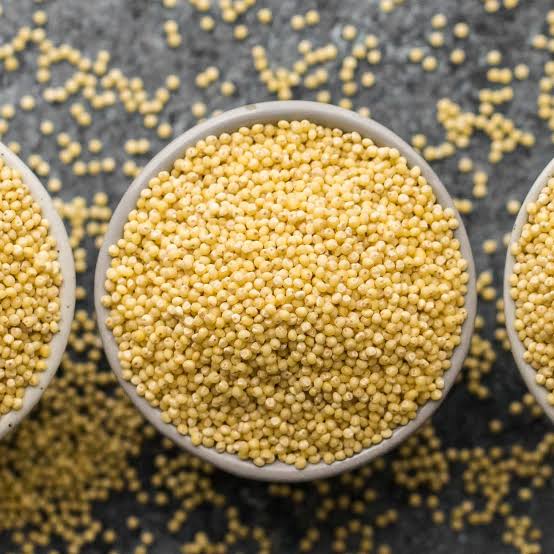Nigeria and India have unveiled an advanced millet producing strategy and advocacy to increase millet production to tackle the looming global food insecurity and improving nutritional values.
Indian High Commissioner to Nigeria, Gangadharan Balasubramanian and Nigeria’s Minister of Agriculture and Rural Development, Mohammed Abubakar, made this known during the commemoration of the International Year of Millet (IYM 2023) organised by the Indian High Commission, Abuja.
The duo said that knowing the health and nutritional benefit of millet, both countries had keyed into the UN declaration of the IYM 2023 to increase production of the grain and create more awareness on the benefits.
Balasubramanian said that India had already taken innovative steps to increasing millet production and with close partnership with Nigeria.
“The International year of Millet was proposed by the government of India at the United Nations and I am very happy to say that Nigeria was one of the eight countries which have co-sponsored this resolution.
“Supported by seventy other people and subsequently was unanimously agreed by the united Nations to announce 2023 as the international year of millet.
“The government of India is very keen, is very conscious. We have a separate millet imitative that has started, various research programmes are going on, various support systems are being put in place.
“Farmers are being taught, there are a lot of activities that are taking place in terms of improving and providing the millets to the general populations.
“Nigeria is one of the major five millets producing countries and it is pertinent to note that India and Nigeria will come together in celebrating this.
“This cooking and food festival is only to showcase that it will be possible for us to have all the kinds of items that we consume on a daily basis which can be replaced by millets also.
“This is just the beginning, we will be having a conclave of meetings between Indian and Nigerian stakeholders in millet production, whether it is the agro-tech, the farmers, or the extension services that will be provided,” Balasubramanian said.
Abubakar said that the Federal Ministry of Agriculture and Rural Development has been promoting millet production and value addition towards self-sufficiency and meeting industrial requirements in the country.
Abubakar who was represented by Engr. Abdullahi Abubakar, a Director in the Ministry said that all hands must be on deck in other for Nigeria to achieve the set goal.
“Presently, millet in Nigeria has not met the national demand and it is attributed to low productivity of the crop.
“Our national demand for millet as at 2022 was 6.4 million metric tons, while our national production is only two million metric tonnes.
“This low productivity can be caused by local potential of the crop’s variety, application of poor agronomic practices, depleted soil, climate change or aggrégation of these factors.
“The ministry is in deer need to increase the productivity of the crop so as to enhance farmers income and attract more youths into millet cultivation and meet our national demand and industrial demand and contribute to the growth of the GDP.
“This event is as well to reawaken the consciousness of Nigerian millet farmers to adopt good agronomic practices to improve the livelihood of farmers and the GDP of Nigeria
“I want to assure you that the Ministry will cooperate with you to ensure that no stone is lefty unturned until Nigeria becomes self-sufficient in millet production in the nearest future,” Abubakar said.
Also speaking, the Etsu Nupe, Alhaji Yahaya Abubakar said that the event is the beginning of a great journey between both countries to producing a crop which will be of immense benefit to humanity.
“I am sure this is just the beginning of our journey towards achieving our desired food security,” he said
Recalls that the event was marked with the Millet Food Festival and Cooking Competition was organised by the High Commission in collaboration with the Niger State government. (NAN)
